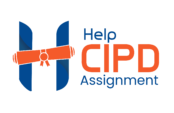3CO04 Essentials of People Practice
- March 26, 2022
- Posted by: admin
- Category: CIPD Level 3

Table of Contents
3CO04 Essentials of People Practice covers the basics of people practice, including the employee lifecycle, workplace policies, regulations, and employment law. It also explores key areas such as recruitment, talent management, employee rewards, and learning and development, which are essential for a career in people practice.
What will you learn
In this unit, you will develop skills in effective recruitment, selection, and hiring by understanding the employee lifecycle and your role within it. You will compare different recruitment and selection methods, helping you apply the skills needed for successful hiring. You will also learn how to create job materials to attract candidates, shortlist applicants, and take part in selection interviews and follow-up actions. A key focus will be on understanding relevant laws, organisational practices, and the importance of diversity and inclusion in recruitment and employee relationships. Additionally, you will explore factors related to performance management and the role of appraisals.
Learning outcomes
By the end of this module, learners will be able to:
- Understand the employee lifecycle and the different roles within it.
- Contribute to the effective selection and hiring of employees.
- Recognise how laws and workplace policies influence employment relationships.
- Understand the role of performance management in motivating and retaining employees.
- Recognise the importance of rewards in attracting, motivating, and keeping employees.
- Support others in developing the skills and knowledge needed to achieve both personal and organisational goals.
This unit is suitable for persons who:
This unit is ideal for individuals who:
- Are studying, starting, or planning a career in people practice.
- Are working in a people practice support role and want to expand their knowledge while adding immediate value to their organisation.
- Want to develop the specialised skills and understanding needed to become a people professional.
Related Articles:


